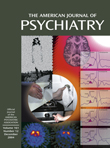Hippocampal Volume in Adult Burn Patients With and Without Posttraumatic Stress Disorder
Abstract
OBJECTIVE: Increasing evidence suggests that posttraumatic stress disorder (PTSD) is associated with small hippocampal size. The authors compared trauma-exposed subjects with PTSD and trauma-exposed subjects without PTSD to clarify whether small hippocampal size is related to PTSD or to mere trauma exposure. METHOD: Three-dimensional structural magnetic resonance imaging was used to assess hippocampal volumes in 30 men who had recently been exposed to a severe burn trauma and 15 matched healthy comparison subjects. RESULTS: Relative to the comparison subjects, the trauma-exposed subjects with PTSD (N=15) as well as the trauma-exposed subjects without PTSD (N=15) had significantly smaller volumes of the right hippocampus (subjects with PTSD: –12%; subjects without PTSD: –13%). Larger total areas of burned body surface were significantly related to smaller left hippocampal volumes. Use of analgesic/sedative treatment with the N-methyl-d-aspartic acid (NMDA) antagonist ketamine was significantly related to larger right hippocampal volumes and to stronger PTSD symptoms. CONCLUSIONS: PTSD is not a necessary condition for small hippocampal size in trauma-exposed individuals. Rather, the results provide evidence that smaller hippocampal size in trauma-exposed individuals is a result of traumatic stress. The posttraumatic application of NMDA antagonists may protect against hippocampal damage induced by traumatic stressors but increases the patient’s risk of developing PTSD symptoms.



